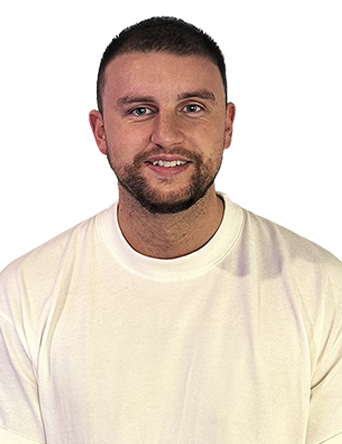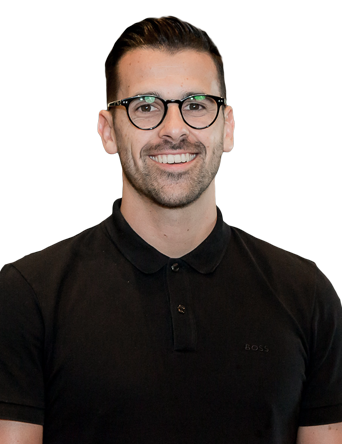Building a high-performance SaaS sales team is not just a matter of filling roles—it's an art that requires strategy, insight, and a keen understanding of your market dynamics.
In a competitive landscape where product features can only take you so far, the true differentiator lies in having the right people driving your sales efforts.
This blog is designed for leaders who aspire to assemble a team that not only understands the intricacies of the SaaS ecosystem but can also engage and convert customers with confidence and finesse.
From defining your ideal candidate profile to implementing effective hiring processes, you’ll discover the essential steps to attract top talent and foster a culture of success.
Whether you’re a seasoned HR strategist or a startup founder wearing multiple hats, mastering the art of hiring can transform your sales team into your greatest asset.
Let's Dive In!
Understanding the SaaS Sales Landscape
The Software as a Service (SaaS) industry has revolutionized how businesses procure and utilize software. Unlike traditional software models that require hefty upfront investments and long implementation cycles, SaaS offers flexibility, scalability, and accessibility. This shift has not only transformed the customer purchasing process but has also redefined the sales landscape. In this dynamic environment, sales teams must be adept at understanding complex product offerings, navigating subscription-based pricing models, and managing ongoing customer relationships. The agility required to thrive in this space is a far cry from the one-off sales techniques of the past.
Sales professionals in the SaaS domain need to be proficient in consultative selling. This involves tailoring solutions to meet individual customer needs rather than pushing a one-size-fits-all product. They must possess a deep understanding of their product’s capabilities, potential integrations, and the broader market landscape. This requires continuous learning and the ability to anticipate customer needs before they arise. The consultative approach not only helps in closing deals but also ensures long-term customer satisfaction and retention, which are vital for SaaS companies relying on recurring revenue.
Moreover, the SaaS sales process is inherently collaborative, often involving cross-functional teams from marketing, customer success, and product development. Sales professionals must work seamlessly with these departments to ensure that prospects receive a cohesive and compelling narrative. This collaboration extends to post-sale activities as well, where maintaining customer relationships and ensuring satisfaction becomes key to reducing churn and fostering loyalty. A high-performance SaaS sales team is thus characterized by its ability to adapt, learn continuously, and work collaboratively across the organization.
Key Traits of High-Performance SaaS Sales Professionals
High-performance SaaS sales professionals possess a unique set of traits that set them apart from their peers. First and foremost, they exhibit a strong customer-centric mindset. Understanding and addressing the specific needs and pain points of customers is at the heart of their approach. They listen actively, ask insightful questions, and provide tailored solutions that drive value for the customer. This customer-first philosophy helps in building trust and establishing long-term relationships, which are crucial in the SaaS model.
Another critical trait is resilience. The sales cycle in SaaS can be long and complex, often involving multiple stakeholders and extensive negotiations. High-performance sales professionals do not get disheartened by setbacks or rejections. Instead, they view them as opportunities to learn and refine their strategies. Their resilience is complemented by a strong sense of self-motivation and the ability to stay focused on their goals. They are persistent in their pursuit of success and are always looking for ways to improve their performance.
Additionally, high-performance SaaS sales professionals demonstrate exceptional communication and interpersonal skills. They can articulate complex technical concepts in a way that is easily understood by non-technical stakeholders. Their ability to convey the value proposition of their product clearly and persuasively is a key factor in their success. They are also adept at building rapport and establishing credibility, which helps in navigating the intricate dynamics of SaaS sales.
Crafting the Perfect Job Description
Crafting the perfect job description is the first step in attracting top talent to your SaaS sales team. A well-written job description not only outlines the responsibilities and qualifications required for the role but also conveys the company's culture and values. It should be clear, concise, and compelling, capturing the attention of potential candidates and encouraging them to apply.
Start by providing a brief overview of your company and the role. Highlight the unique aspects of your product and market position to differentiate your company from others. Clearly define the key responsibilities of the role, including specific tasks and objectives. Use action-oriented language to convey the dynamic nature of the job and the impact the candidate will have on the company's success.
Next, outline the qualifications and skills required for the role. Be specific about the experience and competencies you are looking for, such as knowledge of the SaaS industry, sales techniques, and technical proficiency. Include both hard and soft skills, emphasizing the importance of communication, teamwork, and problem-solving abilities. Additionally, provide information about the opportunities for growth and development within the company, as this can be a significant motivator for top talent.
Effective Sourcing Strategies for Top Talent
Finding the right candidates for your SaaS sales team requires a strategic approach to sourcing. Traditional methods such as job boards and recruitment agencies can be effective, but it's essential to leverage multiple channels to reach a diverse pool of talent. Start by tapping into your existing network and encouraging employee referrals. Your current employees can be a valuable source of qualified candidates, as they understand the company's culture and the specific requirements of the role.
Social media platforms, particularly LinkedIn, are powerful tools for sourcing top talent. Use LinkedIn's advanced search features to identify potential candidates based on their experience, skills, and industry connections. Engage with these candidates by sharing relevant content, participating in industry discussions, and reaching out with personalized messages. Building a strong online presence and showcasing your company's culture and values can also attract passive candidates who may not be actively looking for a new job but are open to new opportunities.
Another effective sourcing strategy is to partner with educational institutions and professional organizations. Attend job fairs, industry conferences, and networking events to connect with potential candidates and promote your company. Additionally, consider collaborating with universities and colleges to create internship programs and provide opportunities for students to gain hands-on experience in SaaS sales. This not only helps in building a pipeline of future talent but also enhances your company's reputation as a preferred employer in the industry.
The Role of Cultural Fit in Hiring
Cultural fit is a critical factor in the hiring process, especially for SaaS sales teams. A candidate's alignment with the company's values, mission, and work environment can significantly impact their performance and overall job satisfaction. Hiring for cultural fit ensures that new employees will integrate seamlessly into the team, collaborate effectively with colleagues, and contribute positively to the company's culture.
To assess cultural fit, it's essential to have a clear understanding of your company's values and the traits that define your ideal employee. During the interview process, ask questions that reveal the candidate's work style, motivations, and how they handle challenges. Look for evidence of behaviors and attitudes that align with your company's culture, such as teamwork, adaptability, and a customer-centric mindset. Additionally, involve multiple team members in the interview process to gather diverse perspectives on the candidate's fit with the team.
It's also important to communicate your company's culture and values clearly to candidates. Provide insights into your work environment, team dynamics, and the company's mission and vision. This helps candidates determine if they will thrive in your organization and ensures that both parties have a mutual understanding of expectations. Remember that cultural fit is a two-way street – it's not just about finding candidates who align with your culture, but also about ensuring that your company is the right fit for them.
Designing a Comprehensive Interview Process
A comprehensive interview process is essential for identifying the best candidates for your SaaS sales team. It should be structured, consistent, and thorough, allowing you to assess candidates' skills, experience, and cultural fit effectively. Start by defining the key competencies and attributes you are looking for in a candidate. Develop a set of standardized interview questions that focus on these areas, ensuring that all candidates are evaluated on the same criteria.
The interview process should include multiple stages, each designed to assess different aspects of the candidate's qualifications. Begin with a phone or video screening to evaluate basic qualifications and gauge the candidate's interest in the role. Follow this with one or more in-depth interviews, involving different team members and stakeholders. These interviews should explore the candidate's experience, technical skills, and ability to handle job-specific scenarios. Use behavioral and situational questions to understand how the candidate has handled challenges in the past and how they would approach similar situations in your organization.
Consider incorporating practical assessments or role-playing exercises into the interview process. These can provide valuable insights into the candidate's problem-solving abilities, communication skills, and how they perform under pressure. For example, you could ask the candidate to prepare and deliver a sales pitch for your product or participate in a mock sales call. These exercises not only help you evaluate the candidate's skills but also give them a realistic preview of the job's demands.
Assessing Candidates: Skills and Competencies
Assessing candidates for your SaaS sales team requires a comprehensive evaluation of their skills and competencies. Start by reviewing their resume and cover letter to identify relevant experience and qualifications. Look for evidence of success in previous sales roles, such as meeting or exceeding targets, managing complex sales cycles, and building strong customer relationships. Pay attention to any industry-specific experience or knowledge that may be beneficial for your company.
During the interview process, focus on assessing both hard and soft skills. Hard skills include technical proficiency, product knowledge, and sales techniques. Ask candidates to demonstrate their understanding of the SaaS industry, your product, and how they would approach selling it to potential customers. Use practical assessments or role-playing exercises to evaluate their ability to handle real-world sales scenarios and challenges. This can provide valuable insights into their problem-solving skills, communication abilities, and how they perform under pressure.
Soft skills are equally important for SaaS sales professionals. These include communication, teamwork, adaptability, and resilience. Use behavioral and situational interview questions to explore how candidates have applied these skills in previous roles. For example, ask them to describe a challenging sales situation they faced, how they handled it, and what the outcome was. Look for evidence of a customer-centric mindset, proactive problem-solving, and the ability to work collaboratively with colleagues and stakeholders. Assessing both hard and soft skills ensures that you select candidates who not only have the technical expertise but also the interpersonal qualities needed for success in a high-performance SaaS sales team.
Onboarding Best Practices for SaaS Sales Teams
Effective onboarding is crucial for setting new hires up for success and ensuring a smooth transition into your SaaS sales team. A structured onboarding program helps new employees understand their roles, build essential skills, and integrate into the company culture. Start by providing a comprehensive orientation that covers the company's mission, values, and organizational structure. This helps new hires gain a clear understanding of how their role fits into the broader business objectives.
Next, focus on product training. Ensure that new sales team members have a deep understanding of your product, its features, and its value proposition. Provide hands-on training sessions, product demos, and access to resources such as product documentation and customer case studies. This knowledge is critical for effectively communicating the product's benefits to potential customers and addressing their questions and concerns.
Additionally, provide training on sales methodologies and tools. Introduce new hires to your sales process, CRM system, and any other tools they will be using in their role. Offer opportunities for role-playing and practice sessions to help them build confidence and refine their sales techniques. Pair new hires with experienced mentors or buddies who can provide guidance, support, and feedback as they navigate their initial weeks on the job. Regular check-ins and performance reviews during the onboarding period can help identify any areas where additional training or support may be needed.
Continuous Training and Development for Sales Success
Continuous training and development are essential for maintaining a high-performance SaaS sales team. The rapidly evolving nature of the SaaS industry means that sales professionals must constantly update their knowledge and skills to stay competitive. Implement a structured training program that includes regular workshops, webinars, and coaching sessions. These should cover a range of topics, including product updates, industry trends, sales techniques, and customer engagement strategies.
Encourage a culture of continuous learning by providing access to resources such as online courses, industry publications, and professional development opportunities. Support employees in obtaining relevant certifications and attending industry conferences and events. This not only helps them stay current with the latest developments in the SaaS space but also enhances their credibility and expertise.
Regular feedback and performance reviews are also critical for ongoing development. Conduct one-on-one meetings with sales team members to discuss their performance, set goals, and identify areas for improvement. Provide constructive feedback and recognize their achievements. Additionally, offer personalized coaching and mentoring to help them overcome challenges and develop their skills further. By investing in continuous training and development, you can ensure that your SaaS sales team remains motivated, capable, and ready to tackle new challenges.
Measuring Performance and Retaining Top Talent
Measuring the performance of your SaaS sales team is crucial for identifying strengths, areas for improvement, and opportunities for growth. Establish clear performance metrics and key performance indicators (KPIs) that align with your business objectives. These may include metrics such as sales targets, conversion rates, customer acquisition costs, and customer retention rates. Regularly track and analyze these metrics to gain insights into individual and team performance.
Use performance data to inform your coaching and development efforts. Identify top performers and analyze the factors contributing to their success. Share best practices and strategies with the rest of the team to elevate overall performance. Additionally, provide targeted support and training for team members who may be struggling to meet their goals. By using data-driven insights to guide your actions, you can continuously improve the effectiveness of your sales team.
Retaining top talent is equally important for maintaining a high-performance SaaS sales team. Create a supportive and rewarding work environment that recognizes and values employees' contributions. Offer competitive compensation packages, performance-based incentives, and opportunities for career advancement. Foster a positive company culture that encourages collaboration, innovation, and a healthy work-life balance. Regularly seek feedback from employees to understand their needs and address any concerns. By prioritizing employee satisfaction and development, you can retain your top performers and build a loyal, motivated, and high-performing sales team.
Don't let SaaS sales Recruitment challenges hold back your growth.
Invest in a SaaS sales Recruitment agency and accelerate your path to success.
Reach out to a member of the team here, or see more about how we can support your growth here.






